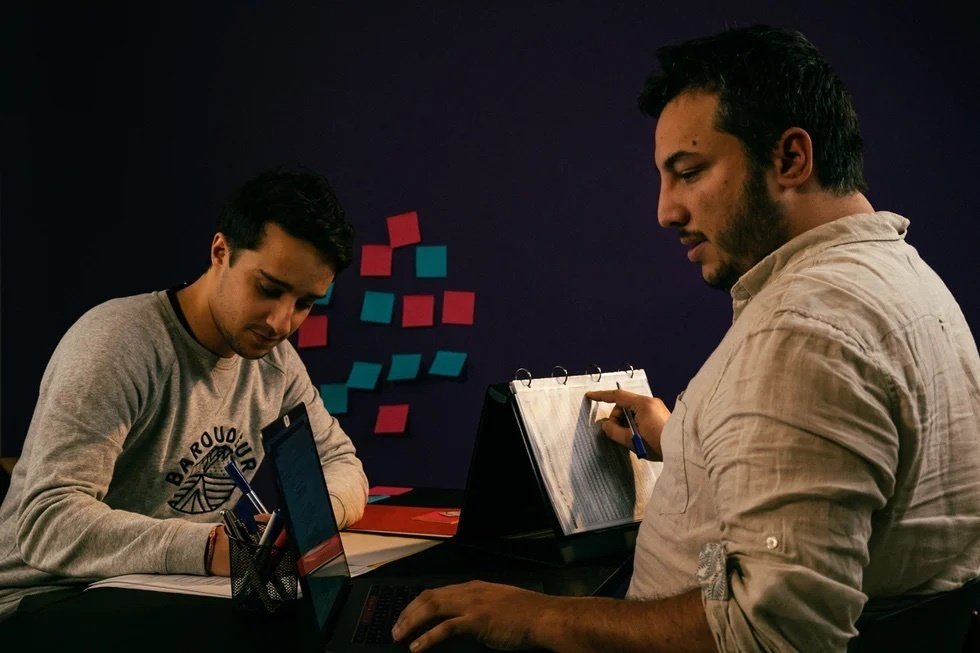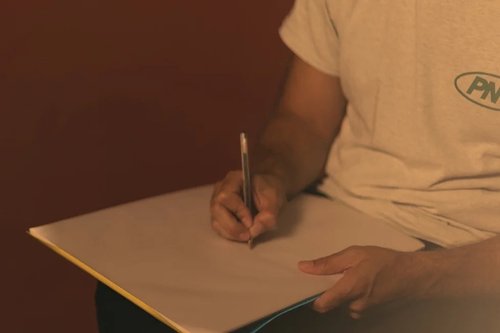Psst ... Your interviewer could be testing you with these tricks
Sep 18, 2023
5 mins


Writer
As hiring managers and recruiters sift through applications with similar motivations, skills, and experience, and the financial risk of a bad hire becomes too high, some employers are turning to unconventional methods to assess a candidate’s potential in more detail and find the right fit. One tactic gaining traction is the use of secret tests during interviews. Secret tests move away from typical interview questions and standard answers to shed light on a person’s ability to problem-solve, think on their feet, get creative, and allow interviewers to examine their performance under pressure. They can also determine whether someone will jive with the company culture and, at their most basic assessment, whether they will clean up after themselves in the office.
However, as this trend gains momentum, questions arise about ethics, bias, and the reliability of secret tests. Are they just a means to help someone narrow down their selection and make a decision, or are they actually a fair way to judge a person’s character?
To learn more about secret tests in interviews, examining their potential benefits and the challenges they pose to both candidates and employers, we spoke with Darin Herle, Founder and CEO of Cosmogence, a global recruiting platform helping businesses find remote talent. He shares his experience with secret tests, what candidates should look out for, and the best way to navigate a secret test should you find yourself in one.
What are examples of secret tests you may encounter?
The gamut of secret testing runs wide: from something as simple as asking the receptionist their impression of you to observing what you do with your coffee cup after the interview. Because you can’t exactly rehearse or prepare for a secret test, their goal is to examine a candidate’s behavior, instincts, and performance rather than their strengths, skills, and experience related to the role.
During his experience in human resources, Herle has become familiar with a few varieties of these tests and experienced many of them himself, “Puzzles, abstract reasoning, word problems, unsolvable situations, take-home tests, projects, dinners—I’ve seen or used all of these at some point in my career,” he says.
Sometimes, employers may even include ‘tricks’ pre-interview, such as putting glaring errors in the job posting to assess the candidate’s attention to detail and whether or not they will point it out.
Why do recruiters and hiring managers use secret tests in the hiring process?
The concept of secret tests falls under many names, including topgrading, psychometric testing, job auditioning, or ‘gotcha’ interviewing. Regardless of what you call it, the intention is the same. “[Hiring managers and recruiters] are looking for information that tells them if a candidate is going to meet or exceed expectations in a job once they’re hired,” Herle says.
So why be so sneaky? Secret tests go beyond traditional interviewing by providing performance-based assessments using real-world examples. Whether this is effective or not remains open to interpretation. Herle believes many interviewers are adding secret tests to the interviewing mix simply to help them make a decision.
“An interview process—which I believe is a highly contrived thing to begin with—consisting of conversations, tests, projects, etc., is simply trying to gather enough information to make a yes/no decision,” Herle begins. “The interviewer is probably operating under the assumption that secret tests reveal information that leads to a better decision.”
What are the plus sides and potential downfalls of secret tests?
In a data-driven world, secret tests cater to our humanity. Without the ability to quantify their success or failure, how someone performs when being secretly assessed comes down to the hiring manager or recruiter’s interpretation. As Herle puts it, “[Secret tests] don’t actually provide any meaningful information to make a hiring decision.”
Eliminating bias is something that every good interviewer should actively aim for. According to common interview biases from the University of Indiana, secret tests can bump up against a few red flags, such as first impressions (making snap judgments based on an action, appearance, or way of speaking), inconsistency in questioning (putting one candidate through a secret test but not doing the same for another), and stereotyping (for example, some ‘favorable’ responses to a secret test could be culturally specific and not necessarily bad nor good).
On the other hand, those in favor of secret tests could argue the opposite, saying that they aim to reduce bias. The argument is a candidate’s response to a secret test has to do with performance and behavior, not appearance or demeanor. For example, going back to the coffee cup test, which might inform the person looking to hire you whether you will be an employee who takes ownership of your tasks and projects (like washing your coffee cup) or leaves someone else to take care of it.
How can job seekers prepare for secret tests or catch if they’re being tested?
Going into an interview with secret tests in mind could leave you feeling a little on edge and nervous to slip up. If you’re reading this and feeling stressed out by the prospect of being caught in a secret test during an interview, relax. Trying to overcompensate or change your usual behavior might land you in a more uncomfortable situation.
Herle believes that even if you find yourself potentially ‘failing’ a secret test, the onus is more on the interviewer than you. “In my experience, interviewers throw any number of questions at a candidate, trying to exercise a number of skill centers,” he notes. “An interviewer relying on a single failed response is probably inexperienced.” So if you’re being put through the ringer with trick questions and tasks, it says more about the interviewer than it does about you. A good interviewer will employ different techniques for an accurate and broad-spectrum assessment of your potential.
Herle’s advice for job seekers is to be themselves. “I usually look for candidates who roll with the punches and are comfortable with anything thrown at them,” he begins. “If anything, this demonstrates their maturity and self-confidence.”
Key takeaways: The potential and pitfalls of secret tests in interviews
Secret tests: friend or foe? They can help you leverage your innate way of being and your everyday character to land the job, but only if you’re doing it ‘right’ per the interviewer. Here are the main ideas and takeaways to remember:
- Secret tests can help eliminate biases. By testing candidates on everyday tasks or putting them in situations they couldn’t rehearse, they aim to show interviewers someone’s character based on performance and action instead of appearance or experience.
- But there’s potential for bias, too. Secret tests are not quantifiable. They also don’t address that what might be ‘right’ for one person is wrong for another, and there’s no way of measuring whether their assessment is being applied equally across all candidates.
- Their success and use largely depend on the interviewer. As Herle pointed out, it’s ultimately the interviewer’s job to make fair and accurate assessments of candidates. Secret tests might just be a way to help them make a decision. If they’re relying on a single failed/passed test to come to that decision, they are likely inexperienced and should reassess their methodology.
- So just be yourself. The best advice of all. Act as you naturally would, be professional, and don’t try to force being different. Ultimately, if it’s the right work environment for you, you’ll pass any test thrown your way, secret or not.
Photo: Welcome to the Jungle
Follow Welcome to the Jungle on Facebook, LinkedIn, and Instagram, and subscribe to our newsletter to get our latest articles every day!

More inspiration: Prepare for a job interview

Hybrid work goals: How to nail the negotiation in your next job interview
Want a hybrid work setup? Learn how to research, negotiate, and showcase the benefits of flexibility during your next job interview.
Dec 19, 2024

The secret to interview success? That annoying colleague
Got a story about a difficult coworker? Good! That office drama might just be your ticket to acing your next interview.
Dec 16, 2024

Is flexibility the key to “having it all” as a parent?
Balancing a career and parenthood can be challenging, but with the right approach, it’s possible to achieve both.
Oct 08, 2024

Slacker vs. control freak: What’s your interview style?
We’ve all been there: whether you're overly anxious or effortlessly cool—what best describes you?
Sep 24, 2024

Overcoming neurotypical norms during the job hunt
Neurodiverse individuals bring valuable innovation and should be more included in the workplace. How can we embrace their unique talents?
Sep 23, 2024
The newsletter that does the job
Want to keep up with the latest articles? Twice a week you can receive stories, jobs, and tips in your inbox.

Looking for your next job?
Over 200,000 people have found a job with Welcome to the Jungle.
Explore jobs